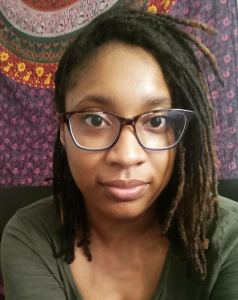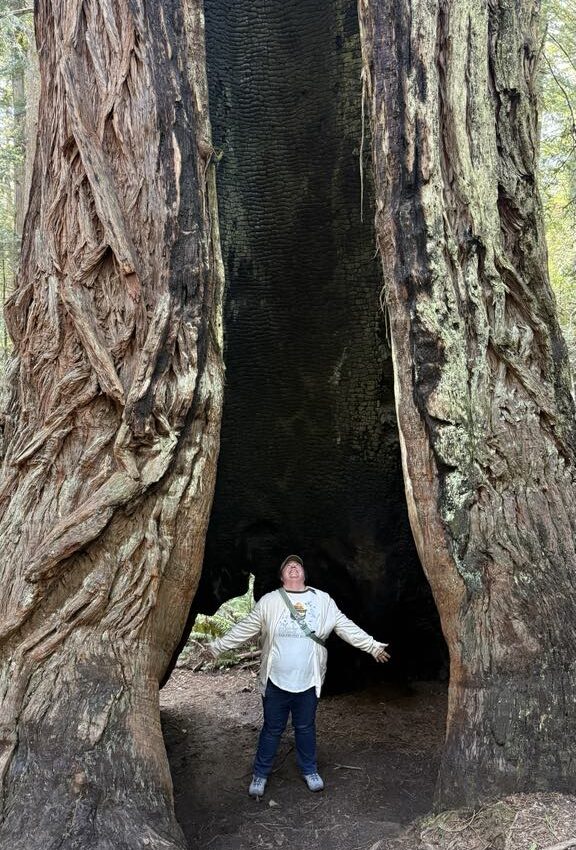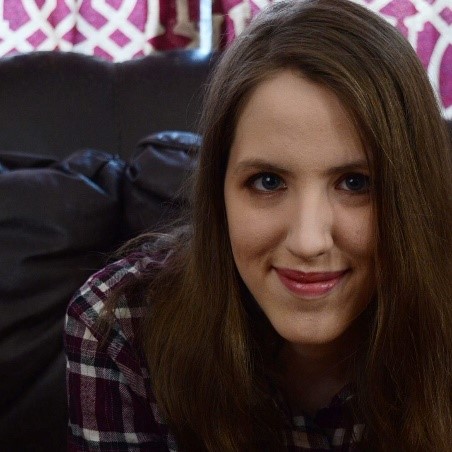I remember the day that I decided I wanted to be a writer. I was ten and, although I had long been labeled as “the girl with the books,” it had never occurred to me that I could create my own. Unsurprisingly, it was Harry Potter that changed that. It wasn’t the story itself that had drawn me in, but the effect that it had on my school. Nearly everyone I knew had read it— students, teachers, staff, the principal. I had never seen a book become so pervasive. I had never seen a book become this universal. I was used to being one of a handful of readers, but now everyone was caught with a book in their lap during class. Everyone knew the story of the boy who lived. The kids who hated books had it on hold at the library, even the ones who were several reading levels behind had a copy of Sorcerer’s Stone at recess. It was astounding to me that someone could write words and have it become so popular and influential. I decided that day that I wanted to write, but as much as I wanted to, it always seemed impossible.
Sure, I had notebooks full of awful poetry and sappy song lyrics and great unfinished novels that would change the world if only I could write past the first few pages. But it was never anything that I was willing to pursue. It never seemed realistic that I could be a writer. People like me weren’t writers, and we certainly weren’t writers of fantasy and horror and sci-fi and whatever else I read in those years. The authors on the backs of those books never looked like me, they never had names like mine. They were white, usually male, usually writing characters who had little to nothing in common with myself.
Even in school, I was never able to see myself in anything that we read. Outside of Langston Hughes and Maya Angelou, which we read once a year for Black History Month before we went back to the “real” writing, there was no mention of black writers or writers of color. The only full-length work written by a black writer that I was assigned to read in all twelve years of my grade school education was A Raisin in the Sun by Lorraine Hansberry, which, if you are unfamiliar, tells the story of poverty and hardship in a black family. Something that I knew plenty about already. There were no monsters or magic in that play and there was nothing fantastical about oppression, only the same thing that had been reinforced since I first discovered books. Black people write about “black things,” and “black things” weren’t the stories that I wanted to write. So, I didn’t.
I’ve heard this sentiment repeated over the years. Classmates who would love to write but do not believe that there is a market for their work. Students who were convinced that the only writing of theirs that mattered must be paired with a beat to make anyone listen. They repress their ambitions and bury them beneath an anxiety that has nothing to do with their potential or discipline or ideas or passion. It is a fear that they simply cannot be in this industry because there is no room for them.
We exist, of course, but when it comes to being “classically popular” or mainstream, there aren’t a lot of people like me out there. When it comes to speculative fiction, there are even less. And although we could just pursue our own interests and make our own tv stations and record labels and production companies and publishing companies, established mainstream media matters. Representation matters. Every year we hear about how white the Oscars are and how male and non-inclusive the Grammys are, and no matter how much we want to roll our eyes at yet another pointless awards show, that sort of thing does matter. Pretty soon, America will be a majority minority country, and if we don’t bring our media, our writing, and our stories to a point that reflects that, then we are silencing most of the country.
It isn’t as if there are no books telling minority stories on the shelves. Writers like Toni Morrison and Octavia Butler and Zora Neale Hurston have paved the way for generations of black writers to follow. Nnedi Okorafor and Tomi Adeyemi and N. K. Jemisin are gaining popularity, writing books that I would have loved to read as a kid. Every year there are more and more people of color on best seller lists, more diverse stories, more ideas and cultures that many people live but rarely get to see.
Things are changing.
Recently, I saw the movie Black Panther. Unless you’ve been living under a rock for the last few months, you’ve most likely noticed the buzz around this movie. It lived up to the hype. Being in the theater on opening night was like standing in line all night for a new Harry Potter book. It’s more than exciting, you can feel the anticipation within your bones. This was a movie about Black superhero in a wealthy Black country directed by a Black director. Would it still have been a great movie if it hadn’t been written by two Black screenwriters? Probably. It’s a Marvel movie after all. But would it have had the same depth and culture and impact? Probably not, because those things come with diversity. This is what happens when people are given the opportunity to tell their own stories, to put themselves on the screen or on television or in books. It resonates with people, and more importantly, it inspires them to do their own thing and make their own art that reflects who they are.
So, what can we do to contribute? How do you make the world of writing more equal and fair? How do you make it more accessible to those who only want an opportunity to claim a chair at this long, ornate table with room for everyone who can put their heart on paper?
Read. Maybe check out that section of books at the bookstore that you usually ignore. Borrow something written by a Native woman. Add a book of Arabic poetry in your cart. Get into Japanese horror. Start an Afrofuturistic book. Add some diversity to your shelf. If there are more readers, then there will be more writers. Just scoot over a little. There are plenty of seats at the table.
 A’rikka Dion is a fiction and poetry writer from Baltimore, MD. She works as a jeweler and has a B.A. in Middle Eastern Studies.
A’rikka Dion is a fiction and poetry writer from Baltimore, MD. She works as a jeweler and has a B.A. in Middle Eastern Studies.
A’rikka’s poetry appears in Black FoxIssue 16.




I truly enjoyed this blog post. It is so substantial that it transcends the idea of a blog. And she is right about how black writers have always been shunted to the side in American letters. Even the writers of the Harlem Renaissance do not get their due. There is a lot of hypocrisy in this country on the subject of race; an astonishing number of white people refuse to admit that African-Americans have it any tougher than they do; but the barriers against recognition for blacks is proof in itself of a wall that they have to scale every passing day. It is good, however, to see more African-American writers forcing their way into the mainstream.